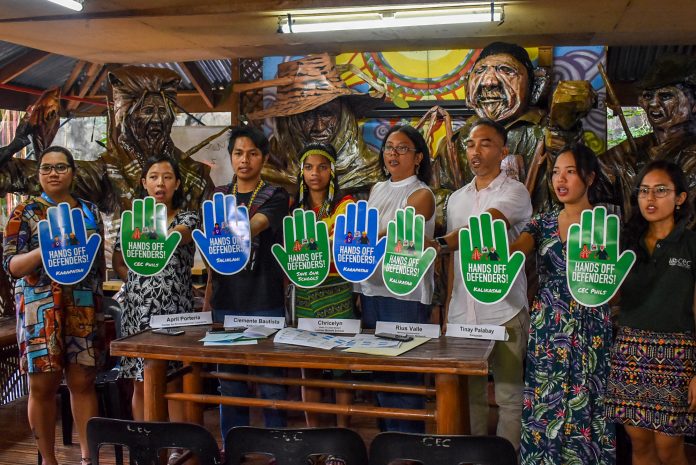Catholic church leaders in the Philippines expressed concern over the “unceasing threats” to the lives of environmental defenders following a report tagged the country as the “deadliest” for green activists.
The church leaders called on the government and the public to protect people and communities “engaged in the protection of Our Common Home and All Creation.”
International research group Global Witness released its annual report on July 29, citing the Philippines as among the “deadliest” for environmental activists.
The report recorded 43 cases of environment-related killings in the country for 2019. Large-scale mining and agribusiness projects were major drivers of attacks, said the report.
The report noted that since President Rodrigo Duterte assumed power in July 2016, at least 157 land and environmental defenders have already been killed.
The Global Witness report recorded the highest number of environment-related killings in a single year with 212 people killed worldwide last year.
Bishop Roberto Mallari of San Jose blamed the government’s “lack of concrete plans” and programs to protect environmental activists.
“What can we expect in this current administration that is being too political,” said the prelate, adding that he is afraid “the killings … will worsen” with the implementation of the new anti-terrorism law.
“Environmental defenders can be accused as terrorists while in fact they only want to protect the environment as well as the ancestral domains of the indigenous people,” said the bishop.
He denounced the killings, which he said has become “part of the administration’s game” since the “war on illegal drugs” in 2016.
The bishop lamented that the poor and marginalized “are always the victim” in the government’s policies “whether on the drug war (or on) nature and land-related issues.”
“We appeal to our people to join together not just in prayer but in taking care of our environment, our common home, and the people who are defending them for us,” said Bishop Mallari.
He said the peoples’ “collective efforts” can have an impact on nature “to preserve its natural beauty for our own consumption and for future generations to enjoy.”
Bishop Gerardo Alminaza of San Carlos said he can “only lament and cry out to stop the killings” as he called on the faithful to “continue to defend life and respect human dignity.”
The prelate called for “dialogue” among local government united, security forces, and civil society groups “so that together we identify and address the root of the problem.”
Bishop Alminaza, who is vice chairman of the social action arm of the Catholic bishops’ conference, said agencies mandated to secure peace and order must all be held accountable.
He challenged Catholic Church leaders across the country “to strengthen our Basic Ecclesial Communities” to “become proactive, faith-driven catalysts for social transformation.”
Bishop Arturo Bastes, retired prelate of Sorsogon, said people “who protected their lands were murdered with the consent of authorities who favor corporations rather than [people.]”
The prelate denounced the persecution, threats, and murder of “religious men and women who sympathized and struggle with the indigenous people.”
“Sad to say that the authorities seem to be corrupted by big corporations that ruin our land, sea, and air,” he said, adding that “the struggle is never-ending.”









